Synthesis of poly(vinyl chloride–g–ethylene glycol) [poly(VC–g–EG)] graft copolymers was carried out by me- ans of “click” chemistry of propargyl polyethylene glycol (propargyl PEG) and terminally azide polyvinyl chloride (PVC–N3). Primarily propargyl PEG was synthesized by the reaction of PEGs (3000 Da, 2000 Da, 1500 Da, 1000 Da, 600 Da, and 400 Da) with propargyl chloride. PVC–N3 was obtained by reaction of purified PVC and sodium azide. By using PVC–N3 and propargyl PEG, poly (VC–g–EG) graft copolymers were synthesized. The primary parameters such as concentration, and time that influenced the reactions were assessed. The charac- terization of products was accomplished by using multi instruments and methods such as nuclear magnetic resonance spectroscopy, Fourier transform infrared spectroscopy, gel permeation chromatography, elemental analysis, and fractional precipitation [non-solvent (petroleum ether, mL)/solvent (THF, mL)] techniques.
Poli(vinil klorür–g–etilen glikol) [poli(VC–g–EG)] graft kopolimerlerin sentezi propargil polietilen glikolün (propargil PEG) ve azit son uçlu polivinil klorürün (PVC–N3) “click” kimyası vasıtasıyla gerçekleştirildi. Öncelikle propargil PEG, çeşitli molekül ağırlığındaki PEG’ler (3000 Da, 2000 Da, 1500 Da, 1000 Da, 600 Da ve 400 Da) ile propargil klorürün tepkimesi sonucunda sentezlendi. PVC–N3, saflaştırılmış PVC ve sodyum azit tepkimesi ile elde edildi. Poli(VC–g–EG)] graft kopolimerler, PVC–N3 ve propargil PEG kullanılarak sentezlendi. Derişim ve zaman gibi tepkimeyi etkileyen temel parametreler değerlendirildi. Ürünlerin karakterizasyonları nükleer manyetik rezonans spektroskopisi, Fourier transform infrared spektroskopisi, gel geçirgenlik kromatografisi, elemental analiz ve fraksiyonlu çöktürme [çözücü (THF, mL)/çöktürücü (petroleum ether, mL)] gibi yöntemler kullanılarak incelendi.
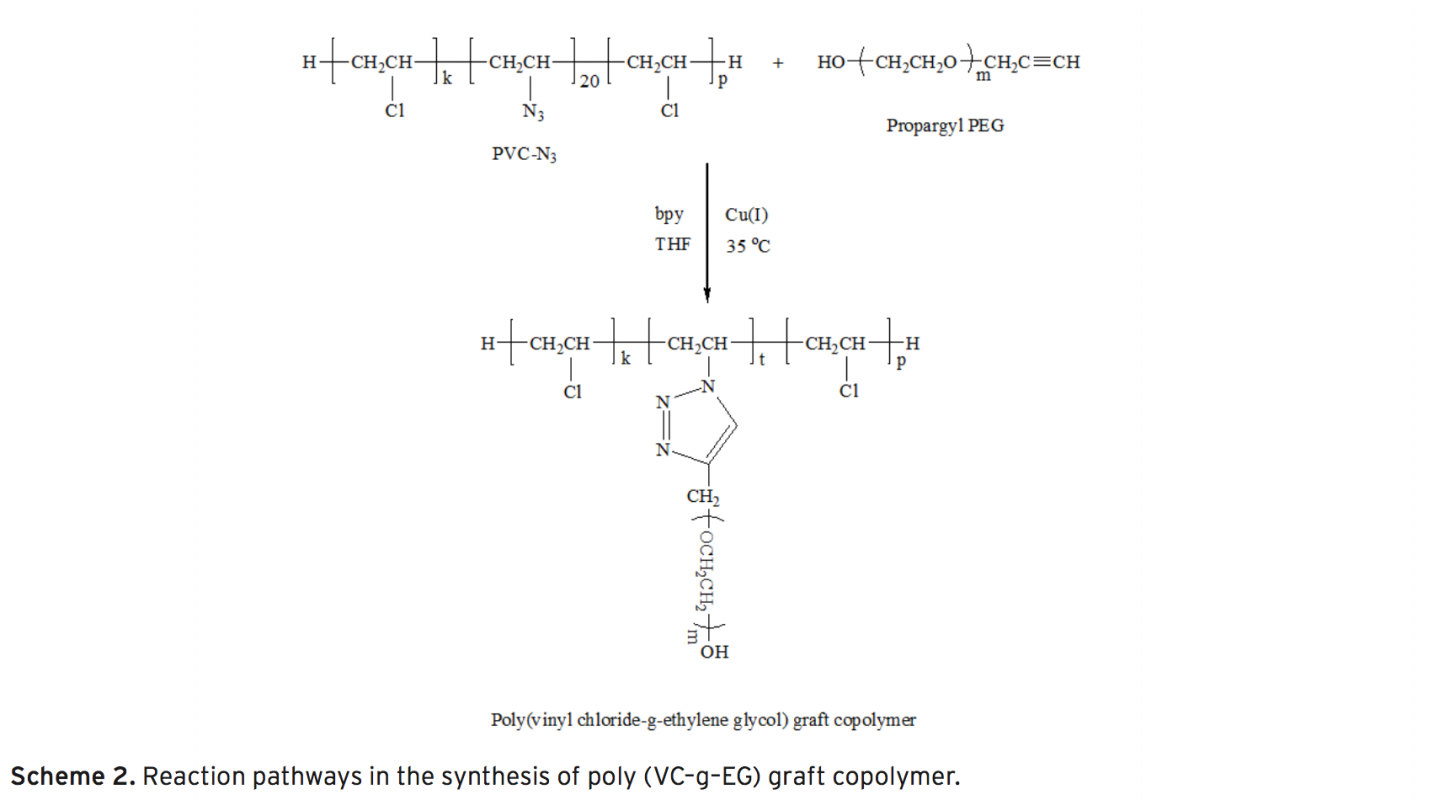
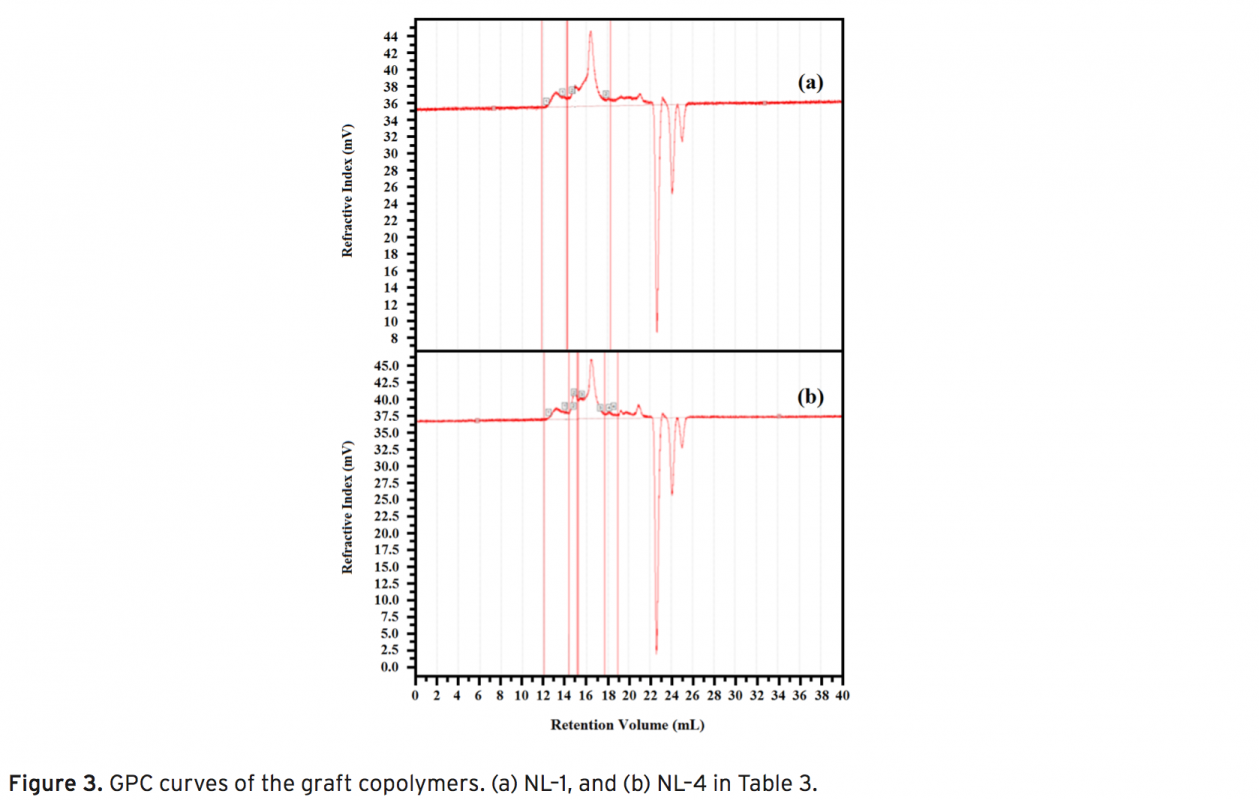
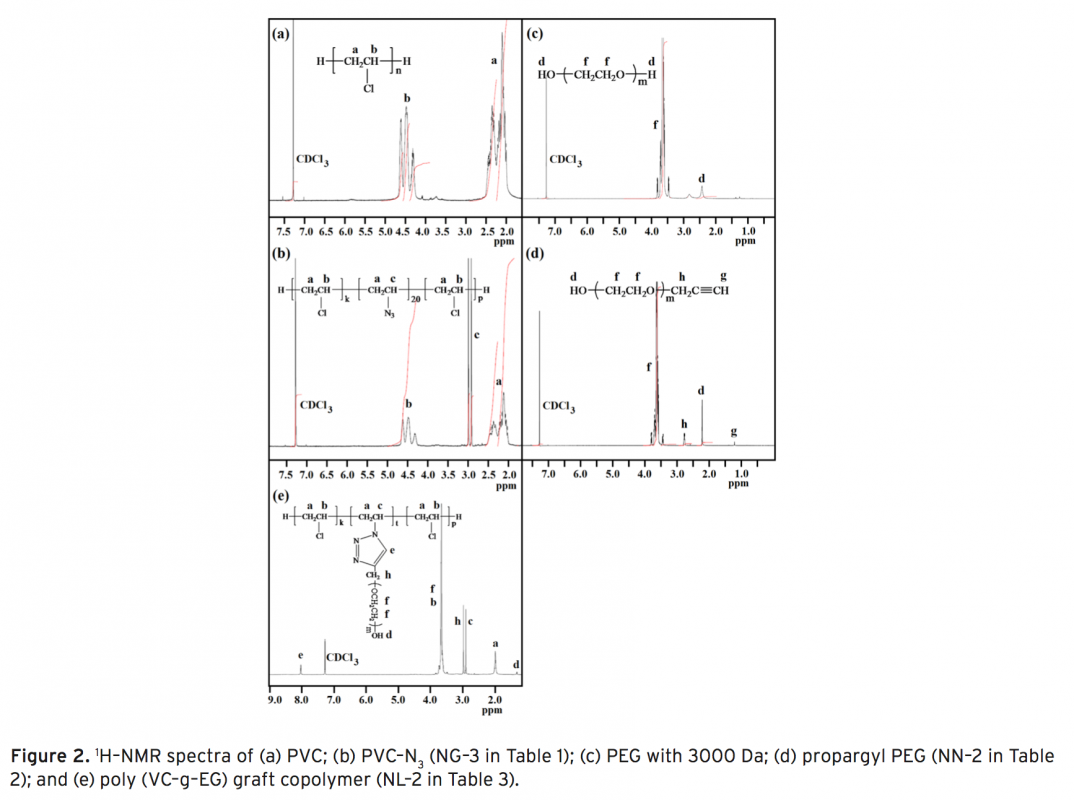
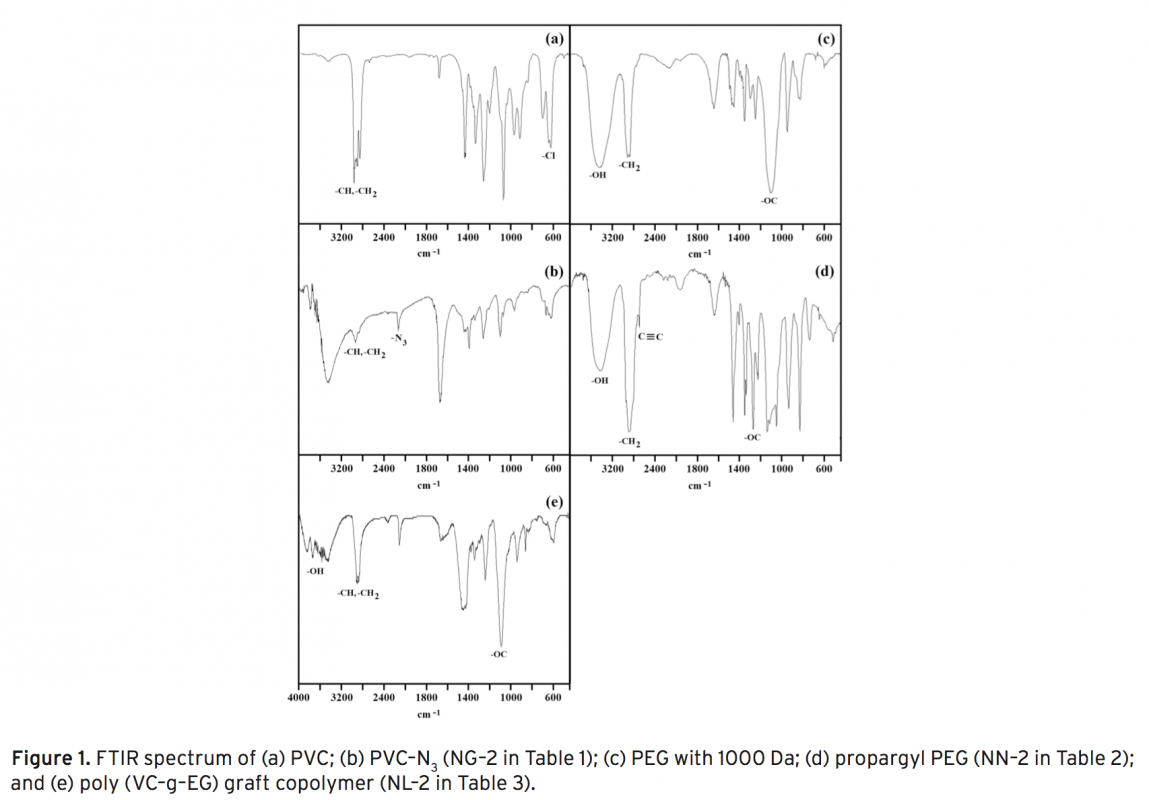
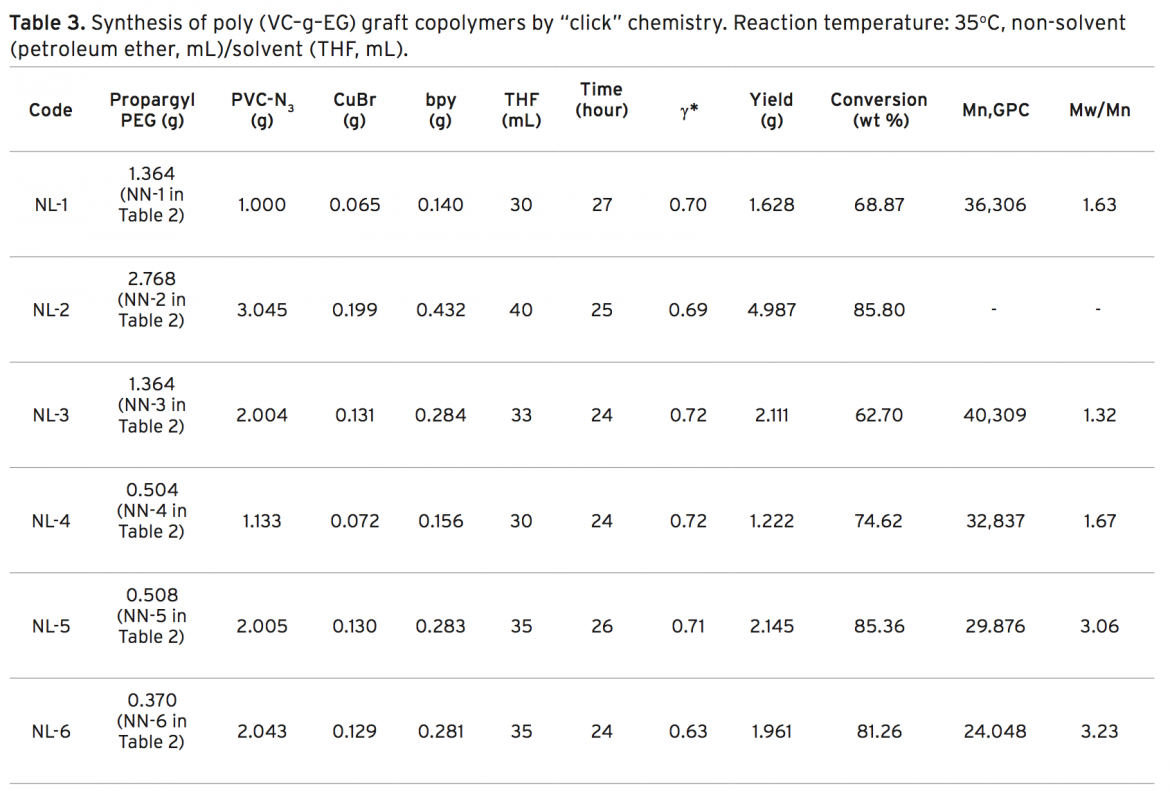
Download Article in PDF (954.2 kB)